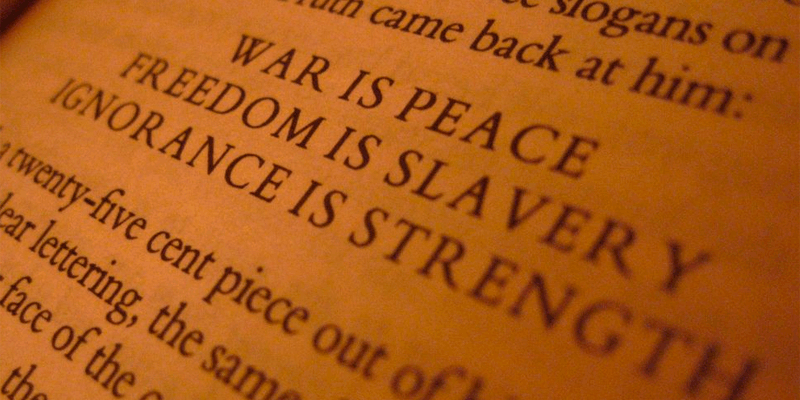Kerby Anderson
If you have ever read George Orwell’s dystopian novel Nineteen Eighty-Four, you are familiar with the idea of newspeak. Examples would be: “War is peace. Freedom is slavery. Ignorance is strength.” But if you look at the news media today, you would probably conclude that Orwell accurately predicted the future but was just off by about thirty-six years.
Gerard Baker believes “The News Media Becomes Fluent in Newspeak.” He acknowledges that we don’t have a “Ministry of Truth” here in America. But that doesn’t mean that newspeak isn’t alive and well in the news coverage we receive.
Consider the term “freedom.” Yes, we are told that free speech does exist on college campuses, but it is so narrowly defined as to not really be free speech at all. He refers to a letter circulated at Princeton University requiring all research and publications be submitted for approval to a special committee in order to root out anything that might be considered a “racist” thought.
How about the term “violence?” According to most of the mainstream media, smashing a statue or assaulting a police officer does not constitute violence if done by a progressive protester. One example he supplies is a BBC tweet that actually said that “27 police officers injured during largely peaceful anti-racism protests.”
By contrast, we have the example of Senator Tom Cotton who wrote an op-ed for the New York Times that suggested the US military could be used when violent protests have overwhelmed police and the National Guard. Staff at the New York Times were furious that his op-ed was printed and argued that his writing was actually a form of violence that must be prohibited from the newspaper.
We live in a world where words like freedom, violence, and racism have been redefined. So be on the lookout for newspeak.
 Listen Online
Listen Online Watch Online
Watch Online Find a Station in Your Area
Find a Station in Your Area










 Listen Now
Listen Now Watch Online
Watch Online
